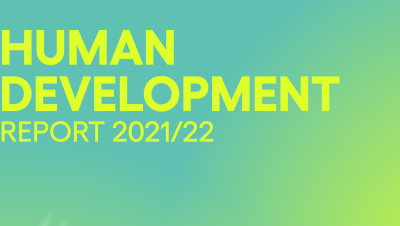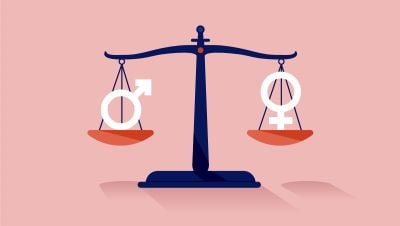"We the peoples…" are the opening words of the UN Charter and UN Secretary-General, António Guterres, has reiterated calls for people-centered development. But what do we actually mean by putting people at the center of development? What new approaches will it take to achieve ambitious global goals for 2030? Let me share three main ideas and one concrete example.
With the significantly raised ambition of the Sustainable Development Goals (SDGs), there is consensus that we must go well beyond business as usual. Relatedly, UNDP’s Human Development Report 2016 ‘Human Development for Everyone’ underscores the importance of empowering people as change agents to realize their full potential. Thus, achieving breakthrough development progress requires new mindsets, thinking, and actions from all of us.
"No problem can be solved by the same kind of thinking that created it.", Albert Einstein
The mainstream development approach during the last decades of the 20th century left us with some impressive achievements but also critical challenges. On the one hand, industrialization and economic growth have produced leaps in materialistic production, technology and life expectancy. On the other, we have been left with environmental destruction, climate change, and growing inequality in many countries.
I believe new 21st century thinking on people’s empowerment for human development can help address these challenges. How? As a start, I’d like to suggest revisiting how people make choices and take actions about their own lives. I also propose to examine the individual’s role in collective development. Let me explore some linkages between self-empowerment and human development with three interconnected ideas:
First, it is important to acknowledge that people’s inner factors such as mindsets and motivations play crucial roles driving people’s behavior and development. Anything ever created by people has first originated in the human mind. So, while we are influenced by our external environment, development is strongly shaped by our mindsets and motivations.
As Nelson Mandela once said: “In judging our progress as individuals we tend to concentrate on external factors such one’s social position, influence, wealth and standard of education...
But internal factors may be even more crucial in assessing one’s development as a human being.
Transformative change and development come from within. More research is therefore needed to shine light on the role of internal factors for people-centered development: What role do mindsets and motivations play? How can we influence these and empower people? How are internal and external factors linked?
Second, empowerment for self-help should be our guiding principle. While social factors matter and governments have critical roles in development, it is ultimately people who are the change agents in their own lives. Self-empowered people are better able to rise above and beyond circumstances, change their environment and sometimes whole societies.
Rather than seeking to ‘develop’ people from the outside, it is more effective to inspire, encourage, and assist. If we acknowledge people as the drivers for change and development, then development assistance should lead to empowerment for self-help.
Third, co-creation means people and partners create development together. Taking self-responsibility while acknowledging shared responsibility is key to sustainable change. This entails listening to people’s aspirations and challenges to jointly strive for solutions. It also means to let go of preconceived ideas and to foster local ownership and deep collaboration.
Let us look at an example: Youchaou Traore from Mali, West Africa, who I first met in Mali’s capital Bamako in 2008. As a five-year-old Youchaou was a street child begging for food but he never lost his dream of getting an education. When a relative recognized the little boy, he was finally able to start first grade at the age of 13. The growing child was determined to get an education and succeeded not only in the standard curriculum but he also learned English.
Unleashing his entrepreneurial spirit, he offered translation services to expatriates and NGOs, and soon became a much-demanded translator. However, business success alone did not fulfill Youchaou who now wanted to help his community to develop. When he shared his aspiration to build a local school with international visitors, they put trust in his vision and supported him to co-finance the construction of classrooms to teach underprivileged children.
Today at 55, Youchaou has realized his dreams: he is founder and director of one of the most successful schools in Mali, École Privée Youchaou, and has supported numerous community development projects. Youchaou has been a source of inspiration for many as a role model of turning his aspirations into reality through self-help, attracting external support to co-create development success.
To conclude, it’s time we embrace human development to consider people themselves as the drivers of change and development. More research is needed to explore the role of people’s inner factors such as mindsets and motivations for their own and collective development.
About the author: Jürgen Nagler is exploring more holistic Human Development approaches. He works as a UNDP Partnership Advisor and is also co-facilitator of the UN Transformation Network. He recently also published a UNDP Blog about Co-Creating Partnerships to Achieve the Global Goals. Follow him on Twitter and Medium.
The HDialogue blog is a platform for debate and discussion. Posts reflect the views of respective authors in their individual capacities and not the views of UNDP/HDRO.
HDRO encourages reflections on the HDialogue contributions. The office posts comments that supports a constructive dialogue on policy options for advancing human development and are formulated respectful of other, potentially differing views. The office reserves the right to contain contributions that appear divisive.
Photo: UN Photo/Staton Winter


